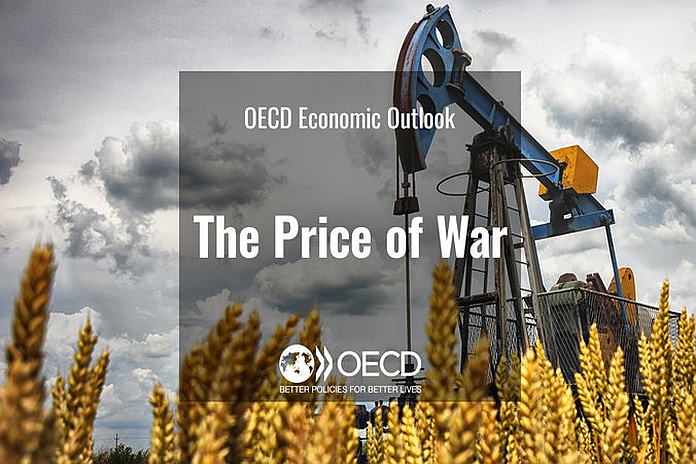PARIS, France, (OECD Economic Outlook, June 2022) – The world is paying a heavy price for Russia’s war in Ukraine. It is a humanitarian disaster, killing thousands and forcing millions from their homes. The war has also triggered a cost-of-living crisis, affecting people worldwide.
When coupled with China’s zero-COVID policy, the war has set the global economy on a course of slower growth and rising inflation – a situation not seen since the 1970s. Rising inflation, largely driven by steep increases in the price of energy and food, is causing hardship for low-income people and raising serious food security risks in the world’s poorest economies.
Here are the three key take-aways:
> The war is slowing the recovery
> Inflationary pressures have intensified
> The cost of living crisis will cause hardship and risks famine
The war is slowing the recovery
This growth slowdown is a price of war which will be paid through lower incomes and fewer job opportunities.
Inflationary pressures have intensified
A gradual reduction of supply chain and commodity price pressures and the impact of rising interest rates should begin to be felt through 2023, but core inflation is nonetheless projected to remain at or above central bank objectives in many major economies at year-end.
The cost of living crisis will cause hardship and risks famine
The surge in commodity prices and possible disruptions to production will have significant consequences. The sharp rise in prices is already undermining purchasing power, which will force lower income households worldwide to cut back on other items to pay for basic energy and food needs.
Read the full article here.





